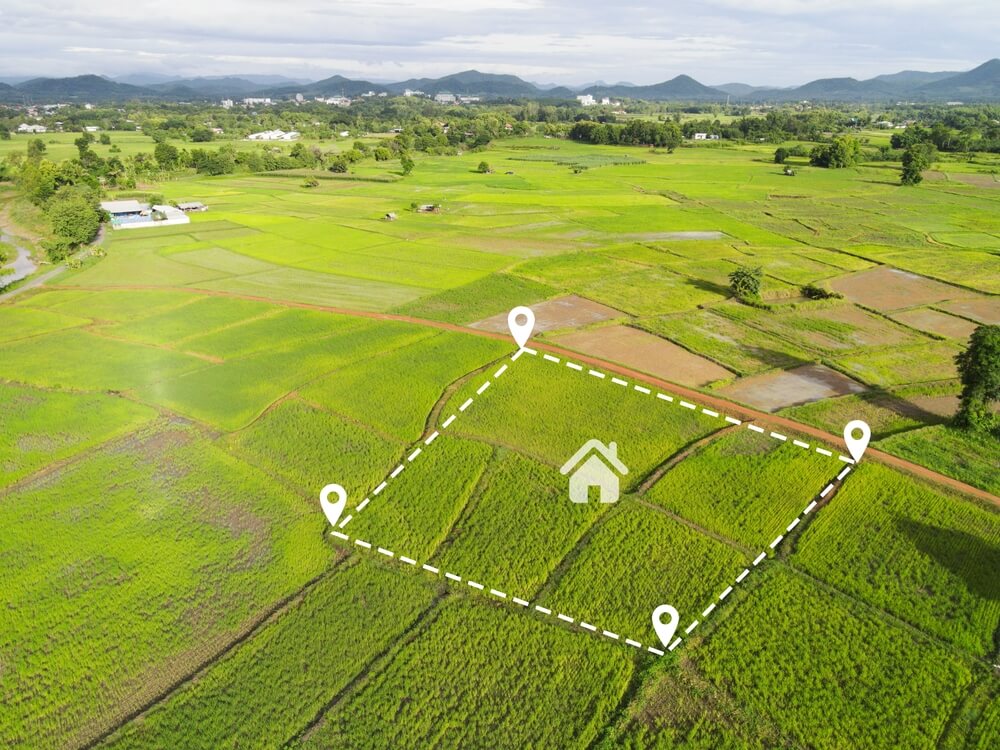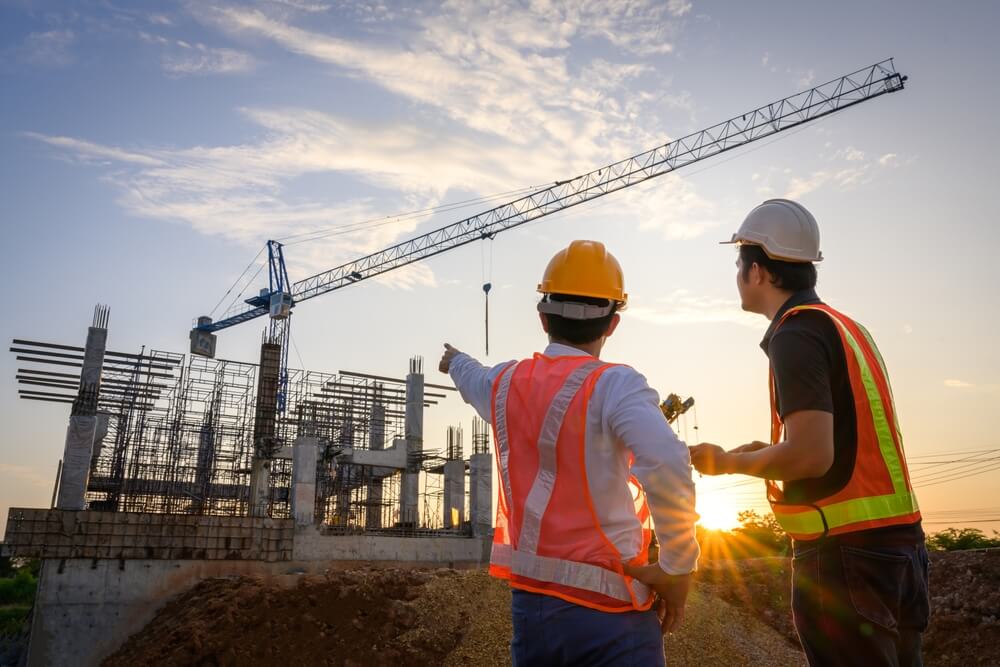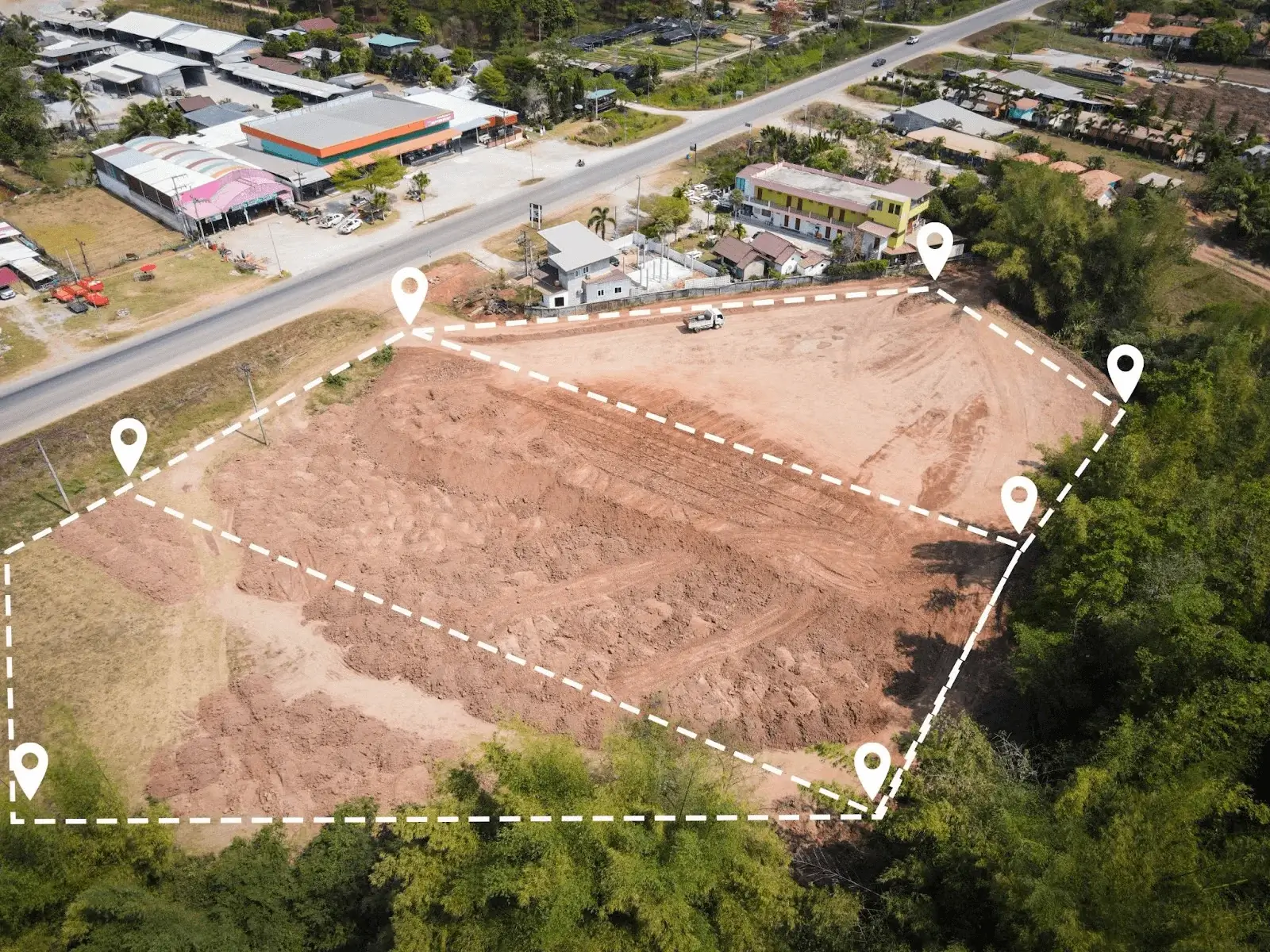Can vacant plots turn into lucrative opportunities? Why not!
Raw land investing can be a strategic move to add to your portfolio and reach your financial goals.
Know more about the untapped potential of raw land and how you can make a good investment out of it.
What Is Raw Land?
Raw land refers to undeveloped and vacant real estate parcels without existing structures or improvements.
Essentially a blank canvas, raw land promises potential development, making it a unique and versatile investment opportunity.
Unlike developed properties, raw land comes without pre-existing structures, allowing investors to shape its destiny according to their vision and goals.
Does Land Appreciate?
One of the fundamental questions in real estate revolves around the appreciation of land value over time.
Unlike structures, land has the potential to appreciate, albeit influenced by various factors. Location, development projects in the vicinity, economic trends, and overall market demand drive land appreciation.
While the value of structures may depreciate over time, well-located and strategically chosen land can see an increase in value.

Types Of Land Investments
There are various types of land investments crucial for investors seeking to diversify their portfolios. Each category has its unique set of considerations and potential returns, catering to different objectives and preferences.
Commercial And Residential Land Investments
Commercial and residential land investments are at the forefront of real estate strategies. Commercial land often involves retail, office, or industrial development, while residential land caters to housing projects.
Both require careful analysis of market trends, zoning regulations, and demographic factors to make informed investment decisions.
Row Crop And Livestock Land Investing
Investing in row crop and livestock land is a key niche within agricultural real estate. This type of land can provide steady income through farming operations or leasing to agricultural producers.
If you are interested in this type of investment, you need to understand the crop cycles, soil quality, and regional agricultural trends.
Small Farmland Investing
Small farmland investing appeals to those looking for a more hands-on and manageable approach to agricultural land. Often suitable for niche or specialty crops, small farmland investments allow investors to actively participate in the agricultural process.
Benefits Of Raw Land Investing
Beyond the tangible benefits of property ownership, raw land investing provides distinct opportunities for strategic wealth creation and portfolio diversification.
- Flexible Development Potential: Raw land allows investors to personalize development plans to their vision. This flexibility empowers investors to explore various land uses, from residential subdivisions to commercial projects, maximizing the property’s potential.
- Strategic Location Appreciation: A well-located piece of raw land can experience significant appreciation over time. Factors such as proximity to urban centers, emerging infrastructure, or desirable natural features contribute to the property’s value growth, making location a key driver in raw land investments.
- Lower Initial Investment: Raw land often requires a lower upfront investment compared to developed properties. It makes raw land accessible to a broader range of investors, facilitating entry into the real estate market without requiring extensive capital.
- Minimal Holding Costs: Raw land typically incurs lower holding costs compared to developed properties, as no structures can be maintained. This can reduce financial burdens for investors, allowing for strategic planning and patient capital appreciation without the ongoing expenses associated with property maintenance.

Land Investment Tips: How To Invest In Land And Profit
Explore these essential tips for investing in land and gain insights into various approaches that can lead to profitable outcomes.
Subdivide For Land Sales
One effective strategy in land investment is subdividing the property for resale. This involves dividing a large parcel into smaller, marketable lots, potentially increasing the overall value.
Investors can capitalize on the demand for smaller plots, catering to various buyers’ preferences and unlocking the profit potential of subdivided land.
Develop It
Opting for development is a proactive way to enhance the value of your land. Developing the land for residential, commercial, or industrial purposes can significantly increase its market worth.
This strategy demands thorough research on zoning regulations, market demand, and construction costs, ensuring a well-planned and profitable development venture.
Buy And Hold
A classic land investment approach is the “buy and hold” strategy, where investors acquire land with the expectation of long-term appreciation.
By patiently waiting for the market to evolve or for surrounding areas to develop, investors can capitalize on the natural appreciation of well-located land.
It requires a strategic mindset and a willingness to hold the investment for an extended period.
Lease It
Leasing land is a viable option for generating steady income without the immediate need for development. Investors can lease the land for agricultural, commercial, or recreational purposes, providing a consistent revenue stream.
This approach offers flexibility, allowing investors to benefit from the land while preserving options for future development or sale.
What Are The Pros Of Buying Undeveloped Land?
Investing in undeveloped land presents a range of advantages that savvy investors can leverage for financial success and strategic growth. Here are some of the benefits of buying land as a good investment.
Flexibility
Investing in raw land provides investors with unparalleled flexibility in shaping their destiny. With no existing structures or predefined land use, investors can customize development plans according to their vision.
This flexibility enables a wide range of potential uses, from residential and commercial developments to agricultural ventures, allowing investors to adapt to evolving market demands and trends.
Low Maintenance Costs
One notable advantage of buying undeveloped land is the significantly lower maintenance costs compared to developed properties.
Without structures to upkeep, investors avoid expenses related to building maintenance, repairs, and renovations. This feature makes undeveloped land an appealing option for those seeking an investment with minimal ongoing financial obligations.
Less Competition
Undeveloped land often experiences less competition in the real estate market compared to developed properties. The unique nature of raw land investments, coupled with the specialized knowledge required, can deter some investors.
The reduced competition can give buyers negotiation leverage and increased opportunities to secure properties at favorable prices.
High Return On Investment
Investing in undeveloped land offers the potential for a high return on investment, especially when strategic decisions align with market trends and development opportunities.
As the demand for land increases over time, well-chosen undeveloped parcels have the potential to appreciate significantly, delivering substantial returns for investors who carefully deal with the real estate market.
What Are The Cons Of Buying Undeveloped Land?
Is land a good investment? While purchasing undeveloped land offers various advantages, it comes with its share of challenges and other factors. In this section, we’ll explore the potential drawbacks associated with buying land as an investment.
Larger Down Payment
Investors often face the requirement of a larger down payment when buying undeveloped land compared to purchasing an existing property.
Lenders may perceive raw land as a riskier investment, resulting in higher upfront costs for buyers. This financial aspect can be a hurdle for those looking to enter the market with limited available capital.
Zoning Restrictions
Undeveloped land is subject to zoning regulations that dictate its allowable uses. Zoning restrictions can limit the type of development permitted on the land, affecting its potential value.
Investors must know these regulations carefully, conducting thorough research to ensure their intended use aligns with local zoning ordinances.
Permitting Costs
Securing the necessary permits for development can incur additional costs and delays when dealing with undeveloped land. The permitting process involves compliance with various regulations, environmental assessments, and approval timelines. These additional hurdles can contribute to project timelines and increase overall investment costs.
Easements
Undeveloped land may have existing easements, granting others the right to use or access a portion of the property.
Easements can restrict development options and impact the overall utility of the land. Investors need to carefully investigate and understand any existing easements to avoid potential conflicts or limitations.
Time
Developing undeveloped land often requires a significant amount of time. From conducting feasibility studies and obtaining permits to executing the development plan, the time required for a return on investment can be considerably longer compared to other real estate ventures.
Investors must be patient and factor in extended timelines when engaging in undeveloped land projects.

How to Buy and Finance Raw Land
The process of buying and financing raw land requires strategic action and careful consideration of key steps.
Scout Appropriate Land
Begin the process by identifying and scouting appropriate land for your investment. Consider factors such as location and zoning rules. You also need to learn its potential for development. Conduct thorough research to ensure the land aligns with your investment objectives and vision.
Get Surveys and Tests
Before finalizing your decision, obtain surveys and conduct necessary tests to assess the land’s suitability for your intended use. Surveys help define property boundaries and uncover any potential issues. Soil tests and environmental assessments are essential to understanding the land’s conditions, ensuring informed decision-making.
Apply for a Land Loan
Once you’ve selected a suitable piece of raw land, explore financing options by applying for a land loan. Research lenders who specialize in land financing and be prepared to provide details about the land, your financial standing, and your development plans.
Understand the terms of the loan. You need to know the interest rates, repayment schedules, and any specific requirements set by the lender. This step is crucial for securing the necessary funds to proceed with the land acquisition and development process.
Where To Find Raw Land For Sale in Houston, TX
Finding raw land for sale in Houston, TX, requires a targeted search through various channels.
Explore the following avenues to discover available opportunities for raw land investments in this dynamic real estate market.
- Local Real Estate Listings: Keep a close eye on local real estate listings through reputable platforms, real estate websites, and local newspapers. Listings often detail the size, location, and zoning of available raw land, offering a comprehensive overview of potential investment opportunities.
- Real Estate Auctions: Attend or participate in real estate auctions, where raw land parcels may be available for sale. Auctions can present unique opportunities to acquire land at competitive prices, but thorough research on the properties and bidding process is essential for success.
- Network with Real Estate Professionals: Build connections with local real estate agents, brokers, and developers who specialize in land transactions. Networking can provide access to off-market deals and exclusive opportunities that may not be publicly listed, offering a competitive edge in the search for raw land in Houston.
It’s important to conduct research on any potential land acquisition, considering factors such as zoning regulations, development potential, and the overall investment landscape in Houston, TX. Contact experts at Apex Realtors today for a consultation.
Is Buying Land A Good Investment For You?
While raw land can offer unique opportunities, it’s important to assess your circumstances and objectives before venturing into this dynamic market.
If you’re seeking personalized guidance on land investments, consult with Apex Realtors, one of the leading commercial and residential real estate companies in Houston, TX.
Our experienced team can provide advice, helping you make informed decisions in your pursuit of a successful land investment.
Ready to explore the potential of land investment with confidence? Reach out to Apex Realtors now for expert guidance on the best place to buy land for investment and unparalleled insights into the real estate market in Houston, TX.

